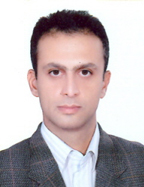
Phillip Rogaway
professor of Department of Computer
Science
University of California, Davis, USA
Title: Constructing Cryptographic Definitions
Abstract: As much as new protocols or
technologies, definitions shape the landscape of modern cryptography. We
describe how cryptographic definitions arise and evolve, and why they are so
crucial, giving examples and perspectives. Definitions I will discuss include
notions for collision-resistant hashing, entity authentication, and garbled
circuits. An underlying finding is that
definitions in cryptography are very much constructed—inventions that reflect
our imagination and disciplinary culture more than discoveries that capture the
underpinnings of an objective reality.
Biography: Professor Phillip Rogaway is a
cryptographer at the University of California, Davis. He did his undergraduate
at UC Berkeley and his Ph.D. at MIT. He next worked at IBM as a Security
Architect, where he became interested in the problem of developing a theory for
cryptography that would be useful, and used, for actual cryptographic
practice. In a body of work done in
large part with Mihir Bellare, Rogaway developed what has been called
“practice-oriented provable security.” For this body of work Rogaway is the
recipient an ACM Kanellakis Theory and Practice Award. More than 14,000 papers
reference Rogaway’s academic work, and standardized cryptographic schemes that
he co-invented include CMAC, DHIES, EME, OAEP, OCB, PSS, UMAC, and XTS.
Interested in social and ethical issues surrounding technology, Rogaway
regularly teaches a class on this subject. Prof. Rogaway recently completed his
work as Program Chair for CRYPTO 2011.
Time: September 14, 2011 – 10 – 11 AM
Present Language: English

Mehran S. Fallah
Associate Prof. of Department of Computer
Engineering and Information Technology
Amirkabir University of Technology
(Tehran Polytechnic), Tehran, Iran
Title: Language-Based Security: Results and Challenges
Abstract: The use of formal methods in the
analysis and design of security-critical systems has long been recognized.
There is a wide spectrum of such methods, from very powerful, nonetheless
cumbersome to use, to lightweight methods. Language-based security can be viewed
as a pointer to a class of methods that lie mostly on the light end of the
spectrum. It can be defined as the knowledge and science of those methods and
mechanisms that are employed in the design and implementation of programming
languages and the way they may be used to enforce, and analyze, security
policies and properties. Devising judicious type systems, rewriting mechanisms,
and run-time systems to enforce security policies are among the research topics
of this area. Language-based security has also led to great achievements in the
analysis of security protocols. In recent years, it has given rise to a number
of practical software tools as well. This talk elaborates on language-based
security, its achievements, challenges, and prospective researches.
Biography: Mehran S. Fallah is
an associate professor of computer engineering and information technology at
Amirkabir University of Technology. After receiving his Ph.D. on formal
description of service availability and denial of service in computer networks
from Tarbiat Modares University, he has continued research and teaching in the
area of information security for almost 10 years. During 2004-2009, he has been
moving into new research areas. In addition to topics in information security
and formal methods, he is pursuing research in game theoretic analysis and
design of computing systems, especially secure systems, as well as in
foundations of programming languages which is fundamental to designing secure
software. His recent papers are mostly in the area of language-based security.
Time: September 15, 2011 – 8:30 – 9:30 AM
Present Language: Persian

